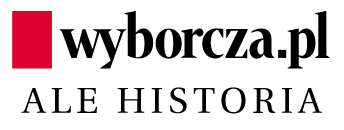 Wojna w Ukrainie. Prezydent Ukrainy Wołodymir Zełeński odznacza obrońców Charkows, 29 maja 2022 r. (Fot. AP)
Wojna w Ukrainie. Prezydent Ukrainy Wołodymir Zełeński odznacza obrońców Charkows, 29 maja 2022 r. (Fot. AP)
 Czy polityk ma moralne prawo, by oddać część terytorium swego kraju?
Czy polityk ma moralne prawo, by oddać część terytorium swego kraju?
Maciej Janowski
Coraz częściej słyszymy głos: czy Ukraina nie powinna ustąpić jakiejś części terytorium w imię pokoju?
Przyznam, że problem granic dopuszczalnego kompromisu jest dla mnie jednym z najbardziej pasjonujących w historii. Czy Wielopolskiemu wolno było rezygnować z ziem zabużańskich w imię wzmocnienia autonomii Królestwa Polskiego? Czy Mikołajczyk mógł oddać ziemie za linią Curzona, aby zachować niepodległość okrojonej Polski? Co robić, kiedy w kościuszkowskim haśle „wolność, całość, niepodległość” dwa ostatnie postulaty są sprzeczne?
Akurat z Mikołajczykiem rzecz jest jasna. Mylił się: nie było pod koniec II wojny światowej szans ocalenia niepodległości za cenę ustępstw terytorialnych. Stalin chciał całej Polski, nie tylko ziem wschodnich. Sprawa Wielopolskiego jest trudniejsza, bo kwestia, na ile jego polityka miała realne szanse, nadal jest dyskusyjna.
Terytorium za niepodległość?
Ale skomplikujmy obraz. Wyobraźmy sobie, wbrew faktom, że jesienią 1944 r. rzeczywiście jest możliwe dzięki oddaniu Sowietom połowy terytorium kraju ocalenie niepodległości drugiej połowy; że alianci są w stanie (i mają wolę) wymusić na Stalinie zgodę na neutralizację Polski pod warunkiem cofnięcia granic poza linię Curzona. Czy wtedy Mikołajczyk miałby moralne prawo do takiego handlu – terytorium za niepodległość? Uważam, że tak, ale można tu się spierać.
Inna analogia: Adam Jerzy Czartoryski na emigracji po 1831 r. w rozmowach z zachodnimi politykami odwoływał się do kongresu wiedeńskiego. Polscy radykałowie niesprawiedliwie zarzucali mu, że godzi się z rozbiorami. Czartoryski chciał niepodległości tak samo jak oni, tyle że odrzucał zasadę „wszystko albo nic”, zdając sobie sprawę, że w niekorzystnej sytuacji należy dążyć choćby do częściowego sukcesu.
Jednak on również nawet owego częściowego sukcesu nie osiągnął. A czy w ogóle istnieje przykład pozytywny, kiedy zgoda na utratę prowincji po klęsce wojskowej wyszła przegranemu na dobre? Przychodzi mi do głowy Francja w 1871 r., po przegranej z Niemcami. Mogła jeszcze walczyć, ale politycy francuscy słusznie uznali, że warto pogodzić się (tymczasowo) z utratą Alzacji i Lotaryngii, zawrzeć pokój i poświęcić się odtworzeniu siły państwa.
Jednak ten przykład niczego nie dowodzi. Prusy, ówczesny wróg Francji, przy wszystkich swych nieprzyjemnych stronach (dobrze znanych Polakom z Poznańskiego) były państwem cywilizowanym i praworządnym, podobnie jak powstałe w 1871 r. nowe cesarstwo niemieckie.
Francuscy politycy nie ryzykowali, że w utraconych prowincjach dokona się orgia morderstw, gwałtów i destrukcji.
Zrzeczenie się Alzacji i Lotaryngii nie oznaczało zagrożenia dla ich mieszkańców. Dziś na Ukrainie ewentualne oddanie części terytorium stawiałoby każdego ukraińskiego polityka podejmującego tę decyzję przed przerażającą odpowiedzialnością moralną za los ludności wydanej na łup masowym mordercom.
Czy Ukraina nie powinna ustąpić w imię pokoju?
I tak wracamy do współczesności. Bardzo słusznie podkreśla się, że nie wolno naciskać na Ukraińców, aby poszli na ustępstwa terytorialne: byłoby to nowe Monachium. Jednak istnieje też zagrożenie odwrotne. Jeżeli namawianie do ustępstw jest moralnie nie do przyjęcia, to równie nieakceptowalne wydaje mi się namawianie do walki bezkompromisowej, kiedy siedzi się w bezpiecznej (na razie) Europie. Gdy czytam takie radykalne polskie wypowiedzi, przypomina mi się Papkin w „Zemście” zachęcający z bezpiecznej odległości służbę Cześnika do większej odwagi w walce o mur graniczny: „Nic się nie bój – ja za tobą”. Presja może być z dwóch stron: od kapitulantów i od jastrzębi, z obu równie niebezpieczna. Argument „ze zbrodniarzami się nie negocjuje” jest wyjątkowo demagogiczny – ależ oczywiście, że się negocjuje, wielokrotnie nie ma innego wyjścia.
Problem na razie jest czysto teoretyczny – Rosja nie daje żadnych sygnałów, że mogłaby pogodzić się z prawdziwą niepodległością Ukrainy w zamian za ustępstwa terytorialne. Dąży tylko do zniszczenia. Ale niewykluczone, że w pewnym momencie, po klęskach wojennych, zacznie negocjować. Wtedy pytanie o granice dopuszczalnego kompromisu stanie się problemem praktycznym. Nie wiem, jak go rozwiązać. Wiem tylko, że odpowiedzi nikomu nie da się narzucić z zewnątrz. Decyzję – taką czy inną – muszą podjąć politycy ukraińscy, podobnie jak w XIX w. decyzję, czy (i kiedy) warto dążyć do kompromisu z zaborcami, musieli podejmować sami Polacy.
Maciej Janowski, historyk, zajmuje się dziejami Polski i Europy w XIX w.
Zawartość publikowanych artykułów i materiałów nie reprezentuje poglądów ani opinii Reunion’68,
ani też webmastera Blogu Reunion’68, chyba ze jest to wyraźnie zaznaczone.
Twoje uwagi, linki, własne artykuły lub wiadomości prześlij na adres:
webmaster@reunion68.com




